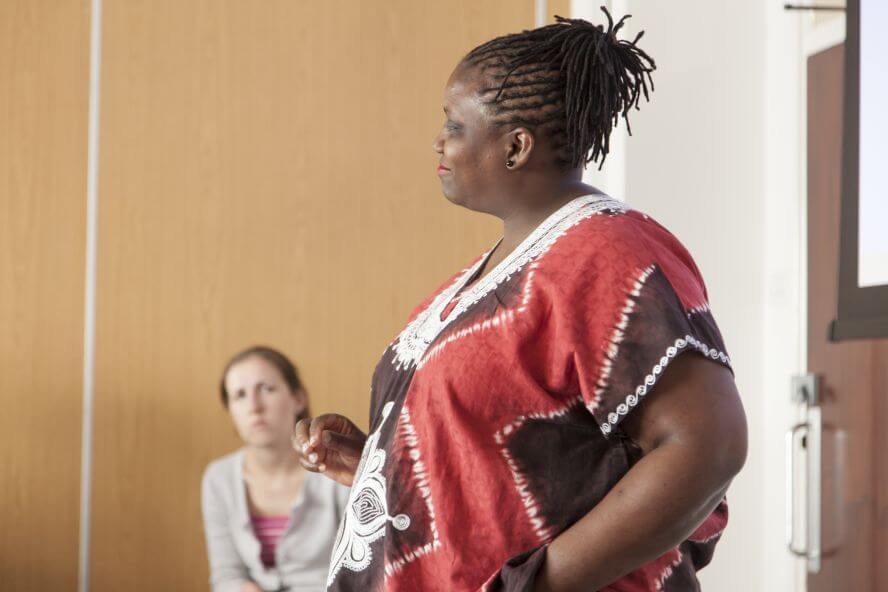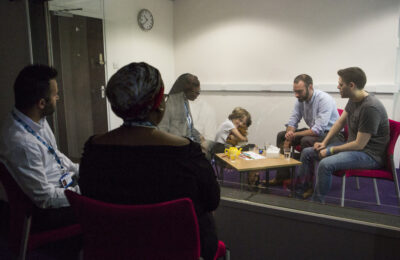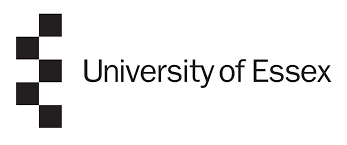
Systemic Approaches to Working with Individuals, Families and Organisations (D4I, intermediate)
Develop an understanding of systemic theory and practice with the most advanced pre-qualifying course in systemic approaches
This course will provide you with a well-developed understanding of systemic theory and practice which will underpin your work with diverse families and organisations.
It is the most advanced pre-qualifying course in systemic approaches and constitutes the best preparation for the clinical training in the UK. This course is validated by the University of Essex and accredited by the Association for Family and Systemic Psychotherapy (AFSP).
This training is preceded by a foundation level course.
About this course
Systemic family therapy involves working therapeutically with individuals, couples and families, and/or their significant others.
This course provides a strong focus on you as a clinical practitioner. You will gain the capacity to recognise multiple contexts, including professional and political discourses, that inform your work. In addition, you will develop your systemic practice skills.
The course consists of the following elements:
- theoretical seminars
- application seminars
- whole-day events
- personal tutorials
- clinical work
Theoretical seminars combine theoretical and experiential learning with an emphasis on interactional learning. In smaller application groups, you will be expected to present your own experience using systemic theoretical concepts.
You will undertake presentations on personal and professional issues, illustrating an aspect of systemic theory.
You will attend two full-day events which include presentations and workshops by systemic clinicians.
For successful completion of the intermediate course, you will need to have completed the following required clinical work with families:
- 60 hours of face-to-face clinical work over the year. This is approximately three sessions a week
- 80% of this face-to-face work must be with families and couples
- 20% of face-to-face work may be systemic consultation, systemic work with individuals or being part of reflecting team
It is preferable that you have a variety of work which includes families that are different to their own and includes liaison with the external professional system. The therapeutic work needs to be ongoing and not only consist of initial assessments or appointments.
You will need to ensure that you receive monthly systemic supervision for your clinical work up to a minimum of ten hours. The supervisor may not hold clinical responsibility for the case; clinical responsibility rests with the senior clinician responsible for the management of the case in the workplace/placement. Your work can be supervised live or retrospectively.
Summary of the intermediate course
Term one
You will look at applying systems at different levels of complexity including workgroups, organisations and communities. You will examine the effects of your family of origin and consider the impact of race, gender, culture, sexual orientation, class and physical ability upon yourself and your family of origin, and connect these ideas and beliefs to your professional practice.
Term two
You will develop an in-depth examination and critical evaluation of the theoretical basis of the systems approaches and their development, together with an exploration of current debates and developments in thinking and practice. You will examine broader applications of systemic theory and analyse how other theoretical approaches overlap and differ.
Term three
You will undertake the ‘Presentation and analysis of a systemic interview’ project in order to demonstrate your systemic practice by presenting an audio or video excerpt of a clinical interview with a family or couple to a panel of two assessors and analysing this in detail. You will develop the ability to think about your work contexts and to intervene in complex work situations involving working with other professionals and other agencies.
Modules
Module 1: Exploration of Difference and Diversity: Workgroup, Organisation, Community
- FHEQ level 7
- 20 credits
- Core module
- Module lead: Rukiya Jemmott
Module aims
The aims of the module are to:
- extend the systemic skills and abilities developed at foundation level, and to apply them to systems at different levels of complexity, including workgroups, organisations, and communities
- enable you to identify an organisational system to observe, negotiate entry into the system and the role of observer, and to arrange the visit
- enable you to observe the workgroup, organisation, or community in its ordinary everyday activities, undertaking an interview/conversation with a manager or senior team member of the system to understand the organisational processes, beliefs and aims of the system under study
Module assessment
You are required to observe an organisation and submit a 3,000 word essay.
Module 2: Core Concepts in Systemic Theory and Practice: Applications to the Contemporary Workforce
- FHEQ level 7
- 20 credits
- Core module
- Module lead: Rukiya Jemmott
Module aims
The aims of the module are to:
- become familiar with a wide range of systemic writing, which will help you to contextualise the theoretical applications and select from a wide range of methods and practice developments
- examine research in the systemic field, especially in relation to service user and carer issues
- develop knowledge and awareness of the evidence base for systemic therapy and NICE guidelines and to learn how to integrate theory with practice
- deepen knowledge of core systemic concepts and their applications in different settings
- critically evaluate systemic therapy and its contribution in the fields of health, education, social care and organisational development
Module assessment
You are required to submit a 3,000 word essay.
Module 3: Further Applications to Practice (Practicing, Reflecting, Exploring)
- FHEQ level 7
- 20 credits
- Core module
- Module lead: Rukiya Jemmott
Module aims
The aims of the module are to:
- demonstrate the capacity to draw upon more than one model of systemic theory
- develop clinical skills
- enhance self-reflexivity
- learn how to present your clinical work in a coherent way
- make links between theory and practice
- facilitate an understanding of the ability to intervene in complex work situations that involves working with other professionals and other agencies
Module assessment
You are required to undertake a 15 minute clinical viva, including a five minute supporting video, audio recording and transcript, and ten minutes of questions from examiners.
Who is this course for?
This course is for you if you already hold an AFSP-accredited foundation certificate in systemic therapy that has been obtained at the Tavistock and Portman, or another recognised institution.
You can also progress to this course if you have successfully completed our Child, Adolescent and Family Mental Wellbeing: Multidisciplinary Practice PgCert, having undertaken the family observation.
On this course, you will need to see families and couples as the key therapist.
Course details
To be eligible for this course, you need to complete one of the following:
- Systemic Approaches to Working with Individuals, Families and Organisations (D4F, foundation)
- Child, Adolescent and Family Mental Wellbeing: Multidisciplinary Practice PgCert
- an AFT-accredited foundation systemic training
If you have not completed one of the above courses, you will need to demonstrate how you meet the learning outcomes of our foundation course.
After submitting an application, please send us an email including a document detailing how you meet these learning outcomes with your full name and the course code in the subject line. Please ensure that you have addressed each learning outcome individually, and provided evidence.
If invited to interview, you will be asked to bring a portfolio demonstrating your systemic learning and experience.
You must also be either working or volunteering in a setting that allows you to complete 60 hours of face-to-face work with families, where you are permitted to use film or audio to record some of your work.
Tuition fees
Home (2026/27)
£3,980
International (2026/27)
£7,960
For more information on tuition fees, including paying for tuition fees, please refer to our tuition fee guidance.
Funding
Funding for current students
We offer several funding options to support current students who need financial assistance during their studies. Please refer to our financial support guidance for more information.
Assessment
This course is assessed through three assignments:
- observation and interview of an organisation and a 3,000 word organisational essay
- a 3,000 word theory essay
- a viva and transcript of two genograms (yours and the families)
- a viva, consisting of a five minute verbal introduction to your five minute audio/video clip of you working with a family systemically, followed by ten minutes to talk about the interventions within your clip, followed by up to ten minutes of questions from two examiners
Attendance
Tuesday evenings from 5.30 to 8.30pm.
The intermediate level of this course is recognised by many organisations as making graduates eligible to use the title ‘Systemic Practitioner’.
Graduates often report that their confidence at work improves and progression is enhanced in the health, social care and voluntary sectors as well as in independent practice.
Students are advised to join the Association of Family Therapy (AFT) to continue access to systemic thinking and CPD opportunities. Those that graduate from the intermediate course are eligible to apply to the qualifying Master’s degree course.
Application support and deadlines
If you have questions about our postgraduate courses, admissions process, or the specifics of your application, you can book a one-to-one online meeting with a member of our admissions team.
There are a number of important application deadlines associated with our postgraduate courses, however we encourage you to apply as early as possible, as spaces on our courses are limited and can be competitive.
Applications for this course are expected to close on the following dates:
- Tuesday 30 June 2026: International applicant student visa deadline
- Sunday 26 July 2026: Summer application deadline
Why study with us?
We have been delivering systemic training for over 30 years. We offer a high level of training delivered by experienced clinicians and supervisors who work in child, adolescent and adult mental health services, and social care settings.
Students who successfully complete this intermediate course will be eligible to apply to our qualifying Systemic Psychotherapy Master’s degree.
Course facilitators
Validations and accreditations
This course is validated by the University of Essex.
This course is accredited by the Association for Family and Systemic Psychotherapy (previously known as the Association for Family Therapy and Systemic Practice)
Apply now
Start your application for the September 2026 cohort of this course.
Please note: you may see the D4I course also referred to as SYPCTP002 in communications from our application system.
Recommended courses
Explore courses to study beforehand
-
 Graduate certificate Eligible for Student Visa
Graduate certificate Eligible for Student Visa
Systemic Approaches to Working with Individuals, Families and Organisations (D4F, foundation)
-
 Postgraduate certificate
Postgraduate certificate 
Child, Adolescent and Family Mental Wellbeing: Multidisciplinary Practice (ED24, online)
Explore courses to study next
-
 Master’s degree Eligible for Student Visa
Master’s degree Eligible for Student Visa
Systemic Psychotherapy (M6)

